TO THE HASHI!: Monahan’s MOJAVE Brings Intriguing Dichotomy Tossed In Conversational Film Salad
For about the first twenty minutes of director William Monahan’s 2015 film, Mojave, an ascetic hand is at work in laying out the mise-en-scène and inciting incident of his self-written script. It all begins with a video clip of protagonist Tom, leaning back in a chair and smoking a cigarette. We learn that he has been famous for most of his life, the nature of his celebrity a question (the answer, though made clear later, is perhaps inapropos, if we allow that Tom, in his own way, is a cipher), and that he is bored with his life to the point of suicidal insouciance. Insouciance, as it were, at once a term a duo of emulous characters in this film would discuss for hours in a Metaphysica drama.
Monahan shoots, in the opening minutes that follow the video clip, what must have been a stack of nearly blank pages, capturing an economy of expressions that call to mind what French filmmaker Robert Bresson once said about cinematography, “a writing with images in movement and with sounds”, or, as writer Paul Schrader termed it, “a transcendental style”.
 |
| Not this one. |
As we begin to follow the laconic Tom, he gathers his things and wanders from his home and into the desert, a frontier – I am reminded of Kaurismaki’s 1990 film, The Match Factory Girl. It is, to be sure, an unfair comparison. But it makes for an interesting one as the images that present Tom to us as a character, weighed in evidence before the narrative throws us the distraction of other characters, speak to a psyche–much like Kaurismaki’s protagonist Iris – desperate to escape the trappings of his life.
Apparently Tom is in the mist of an impromptu spiritual intermission of sorts, the emptiness of the desert an appropriate setting, when he senses he is being watched, and, showing a survivalist’s instinct not before this point forebode, draws a pocket knife and stands to meet his unwelcome guest.
The next day he crashes his jeep and proceeds to continue his journey on foot. That’s when he meets the guy who’s been watching, the rifle bearing man just strolled up to Tom’s new camp to help himself to some coffee. Jack, an outlandish drifter that looks suspiciously like Oscar Isaac.
It can be argued that Jack and Tom are these contrary expressions of rage interpreted. Jack’s anger, as he gets to know Tom, becomes a rage justified by the umbrage of watching a privileged man take for granted what he has. Tom’s rage, that his attempt to gain perspective on life (or decide, on his own, to end it –perhaps by a form of seppuku) would be interrupted by a stranger seeking to take advantage of his ennui, to, worse, rob him of his choice in regard to life itself. Both Tom and Jake, the campfire blazing between them, speak in grandiose language. Much like Ahab – who as Jake references at one point – does when addressing his crew in the book Moby Dick, to inspire and uplift them. These two characters are flipsides of the same damaged psyche, engaged in a private war to see whose ideology is most true to life.
It is noted that they share throughout the film’s runtime a prolific –gratuitous?- use of the word “brother” when addressing each other, ironically. It is like how the quote “I am my brother’s keeper” is used in New Jack City, its meaning changed from when Alex Haley used the same line in his novel, “A Different Kind of Christmas”; A sort of bastardization of the concept, of the language itself, in the same way that these two main characters in Mojave are bastards. Bastards, and, as mentioned above, literary ciphers. It’s a lot to take it. Or perhaps it isn’t. The film’s intelligence leaks out of the ear like liquidized brain matter every time Mark Wahlberg makes an appearance (more on this in a moment). I wish I could call that an exaggeration.
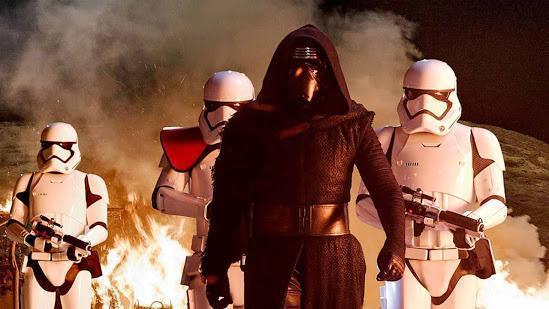 |
| Letting Kylo Ren off the hook for failing Vader. |
Tom makes efforts to refit himself into his celebrity lifestyle while Jake takes his time to stalk and learn about Tom. There’s a scene where he watches the documentary from the film’s opening clip. It plays like social commentary on the sociopathic relationship between star and fan. Andrew Hewitt brings eerie music to the score, at which point the film achieves a further transcendence – a Kafka-esque metamorphosis from noir-ish thriller to…broken satire? …For the life of me, I can’t get over Wahlberg’s character. It’s like he is method acting for a continuation of his role in Transformers: Age Of Extinction, a jarring fit, no doubt, in a movie wherein two guys that eventually try to kill each other have discussions about philosophy, Shakespeare, and the historic ramifications of influence wrought by men who wander in deserts. Perhaps if the film had remained as ascetic as it began, more opportunities could have been mined for providing comic relieve between the two principle characters. Instead, Mark Wahlberg’s Norman, presumably, is saddled with this high order – one ultimately unfulfilled.
It’s hard to not to feel a little sorry for Monahan. The first twenty minutes of his film err towards brilliance, reminding you for a suspended moment that this is the same guy behind the script for The Departed. On that honor, and to assist Monahan is saving a little face, perhaps I’ll end on a positive note, bringing up again that poignant opening: In Jake’s soliloquy on the influence of men who wander in deserts, there is a reference to T.E. Lawrence, better known to some as Lawrence of Arabia. It is noted that Lawrence trekked across the Sinai Peninsula to Aqaba to the Suez Canal in a 70 hour journey with little food, water, or rest, during which he wrote his master work, “Seven Pillars of Wisdom”. The historical record reminds that it was rewritten after losing the original manuscript while changing trains at Reading railway station.
Khalil Barnett is a martial arts practioner living in Florida, and is also a filmmaker, writer, producer and actor starring in the independent action drama series, The Way, and co-creator of upcoming indie action short, Santos. Visit the official Facebook page for more info.
Native New Yorker. Been writing for a long time now, and I enjoy what I do. Be nice to me!

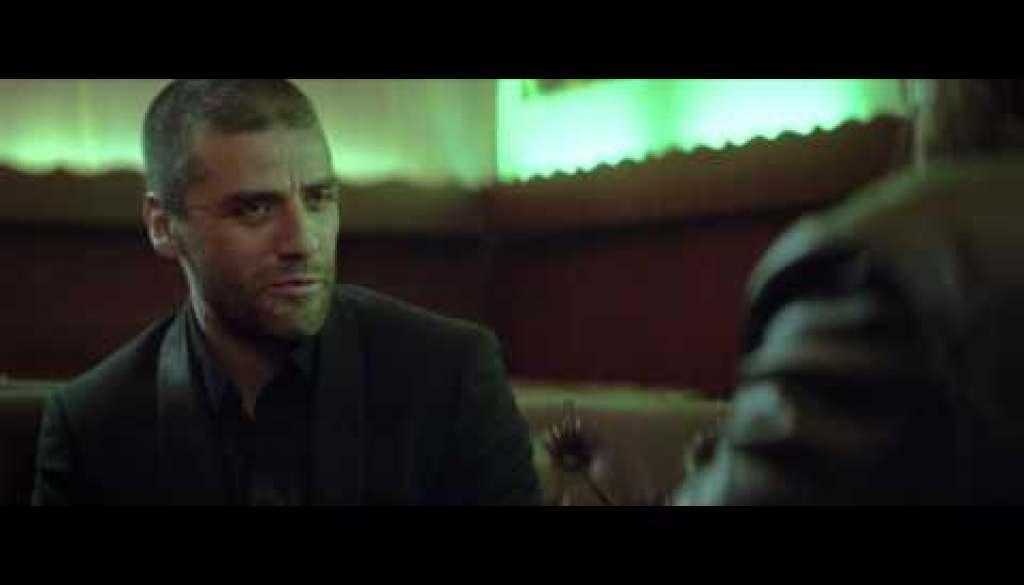
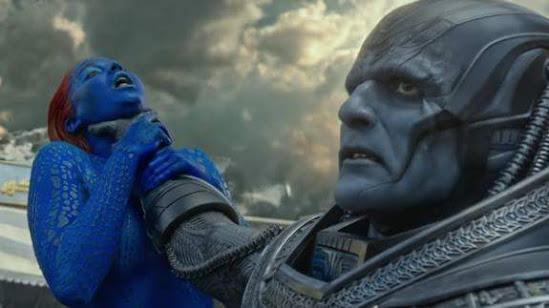

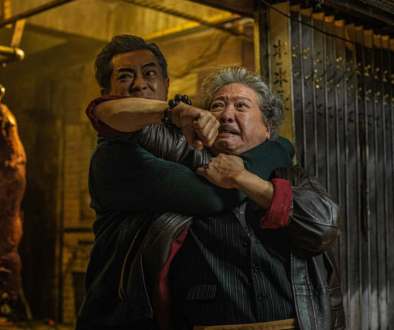

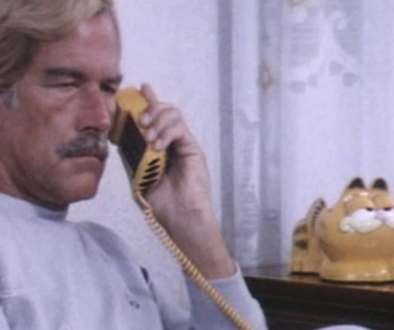
April 13, 2016 @ 11:27 pm
you are possessed of a delightful and nuanced brilliance sir. i am impressed over and over again.